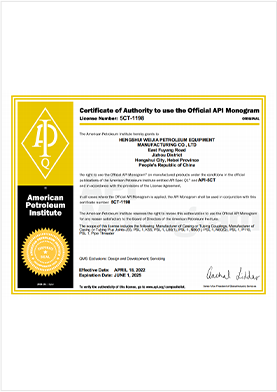- Afrikaans
- Albanian
- Amharic
- Arabic
- Armenian
- Azerbaijani
- Basque
- Belarusian
- Bengali
- Bosnian
- Bulgarian
- Catalan
- Cebuano
- Corsican
- Croatian
- Czech
- Danish
- Dutch
- English
- Esperanto
- Estonian
- Finnish
- French
- Frisian
- Galician
- Georgian
- German
- Greek
- Gujarati
- Haitian Creole
- hausa
- hawaiian
- Hebrew
- Hindi
- Miao
- Hungarian
- Icelandic
- igbo
- Indonesian
- irish
- Italian
- Japanese
- Javanese
- Kannada
- kazakh
- Khmer
- Rwandese
- Korean
- Kurdish
- Kyrgyz
- Lao
- Latin
- Latvian
- Lithuanian
- Luxembourgish
- Macedonian
- Malgashi
- Malay
- Malayalam
- Maltese
- Maori
- Marathi
- Mongolian
- Myanmar
- Nepali
- Norwegian
- Norwegian
- Occitan
- Pashto
- Persian
- Polish
- Portuguese
- Punjabi
- Romanian
- Russian
- Samoan
- Scottish Gaelic
- Serbian
- Sesotho
- Shona
- Sindhi
- Sinhala
- Slovak
- Slovenian
- Somali
- Spanish
- Sundanese
- Swahili
- Swedish
- Tagalog
- Tajik
- Tamil
- Tatar
- Telugu
- Thai
- Turkish
- Turkmen
- Ukrainian
- Urdu
- Uighur
- Uzbek
- Vietnamese
- Welsh
- Bantu
- Yiddish
- Yoruba
- Zulu
Exploring the Benefits of Teflon Couplings in Modern Applications and Industries
Understanding Teflon Coupling Applications and Benefits
Teflon coupling is a versatile technology that has gained traction across various industries due to its unique properties and applications. Teflon, chemically known as polytetrafluoroethylene (PTFE), is a high-performance fluoropolymer renowned for its exceptional non-stick surface, chemical resistance, and thermal stability. These characteristics make Teflon an ideal material for coupling applications, particularly in environments that require durability and reliability.
What is Teflon Coupling?
At its core, Teflon coupling refers to the use of Teflon to join two or more components together. This can be in the form of pipes, fittings, or even mechanical devices that require a certain degree of flexibility while maintaining a strong connection. Teflon coupling is often employed in situations where traditional materials might fail due to corrosion, extreme temperatures, or friction.
One of the most common uses of Teflon coupling is in fluid transfer systems, particularly in industries such as pharmaceuticals, food processing, and chemical manufacturing. The inert nature of Teflon ensures that it does not react with most chemicals, making it an ideal choice for handling aggressive fluids or corrosive materials. As a result, Teflon-coupled systems are less likely to require frequent maintenance or replacement, leading to lower operational costs in the long run.
Benefits of Teflon Coupling
1. Chemical Resistance One of the most significant advantages of Teflon coupling is its superior chemical resistance. It can withstand a broad spectrum of chemicals without degradation, making it ideal for environments where other materials might corrode.
2. High Temperature Tolerance Teflon exhibits excellent thermal stability, capable of functioning effectively at elevated temperatures. This makes it suitable for applications in areas where heat can be a concern, such as in chemical reactors and heat exchangers.
3. Low Friction Coefficient The non-stick property of Teflon means that it has a very low friction coefficient. This feature reduces wear and tear on coupling mechanisms, prolonging the lifespan of the equipment. In mechanical applications, this translates to increased efficiency and reduced energy consumption.
4. Flexibility and Versatility Teflon can be easily molded into various shapes and forms, allowing it to be customized for specific applications. Whether it's piping connections, seals, or gaskets, Teflon coupling can cater to unique requirements in different industries.
teflon coupling

5. Non-Reactive Nature Teflon's non-reactive quality means that it will not release harmful chemicals into the fluids it comes into contact with. This characteristic is particularly crucial in the pharmaceutical and food industries, where contamination must be minimized at all costs.
Applications of Teflon Coupling
Teflon coupling finds usage across a diverse range of sectors
- Pharmaceutical Industry Used in the production and transfer of drugs and medical devices, ensuring that no undesirable reactions take place during processing. - Food Processing Helps in maintaining the integrity and purity of food products by preventing contamination, while also providing easy cleaning capabilities.
- Chemical Manufacturing Essential for handling aggressive chemicals, Teflon coupling helps in creating safe and efficient production environments.
- Oil and Gas Industry Applied in pipelines and fittings where traditional materials may fail due to corrosive substances.
- Aerospace and Defense Utilized in systems that require a high degree of reliability and performance under extreme conditions.
Conclusion
In summary, Teflon coupling represents an innovative solution for numerous industrial challenges. Its remarkable properties such as chemical resistance, temperature stability, and low friction make it a preferred choice across various applications. As industries continue to evolve and demand higher standards of performance and safety, Teflon coupling is likely to play an increasingly prominent role in ensuring reliability and efficiency in operations. By investing in Teflon coupling technologies, businesses can enjoy enhanced durability and reduced maintenance costs, ultimately leading to greater productivity and profitability.
-
Tubing Pup Joints: Essential Components for Oil and Gas OperationsNewsJul.10,2025
-
Pup Joints: Essential Components for Reliable Drilling OperationsNewsJul.10,2025
-
Pipe Couplings: Connecting Your World EfficientlyNewsJul.10,2025
-
Mastering Oilfield Operations with Quality Tubing and CasingNewsJul.10,2025
-
High-Quality Casing Couplings for Every NeedNewsJul.10,2025
-
Boost Your Drilling Efficiency with Premium Crossover Tools & Seating NipplesNewsJul.10,2025







